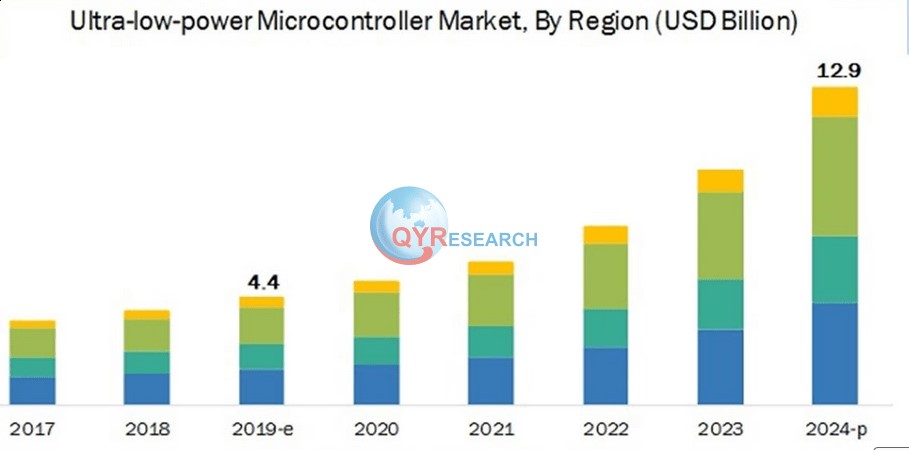Ultra-low power MCU is a kind of microcontroller unit, and its power consumption is low, usually small than microampere (μ A). Ultra-low power MCU usually adopts special designs and technologies, such as low power mode, sleep mode, dynamic voltage and frequency scaling and power management unit, etc., in order to minimize power consumption and prolong battery life. In addition, ultra-low power MCU has the characteristics of high integration, which can realize multiple functions in small package, thus reducing system cost and complexity. This MCU is usually used for applications that need to run for a long time, such as sensor networks, smart homes, medical devices and wearable devices.

Following are the effects of several factors on ultra-low power MCU:
- Political factors
The influence of political factors on ultra-low power MCU market is mainly reflected in policies and regulations, political stability and international trade. Changes in policies and regulations may affect the production and sales of ultra-low power MCUs, uncertainties in political stability may affect market demand, and changes in international trade may affect the export and import of ultra-low power MCUs.
- Economic factors
The influence of economic factors on ultra-low power MCU market is mainly reflected in economic growth, monetary policy, consumer confidence and competitiveness. The speed and stability of economic growth may affect market demand and investment environment, changes in monetary policy may affect the cost and price of ultra-low power MCU, changes in consumer confidence may affect market demand, and changes in competitiveness may affect market share and profit rate of ultra-low power MCU.
- Social factors
The influence of social factors on ultra-low power MCU market is mainly reflected in population structure, consumption habits, cultural background and social values. Changes in population structure may affect market demand and product design, changes in consumption habits may affect market demand and product positioning, and changes in cultural background and social values may affect market demand and product image.
- Technical factors
The influence of technical factors on ultra-low power MCU market is mainly reflected in technological innovation, patent protection and standard setting. The speed and quality of technological innovation may affect market competitiveness and product differentiation, the strength and effectiveness of patent protection may affect market share and profit rate, and the rationality and fairness of standard setting may affect market competitiveness and product quality.

Ultra-low-power microcontroller market
According to the data, the market scale of ultra-low power MCU is expanding, and it is estimated that it will reach more than 10 billion US dollars by 2025. The reason why the market growing so rapidly is mainly driven by the Internet of Things and intelligent applications. It is expected that the market growth rate will remain above 10% in the next few years.
The technical trends of ultra-low power MCU market mainly include low power consumption mode, sleep mode, dynamic voltage regulation, power management unit, security and integration, etc., which are mainly used in sensor networks, smart homes, medical devices, wearable devices, industrial control and automotive electronics. Among them, smart home and medical equipment are the main application fields of the market.
With the continuous development of Internet of Things and intelligent applications, the market demand of ultra-low power MCU will continue to increase, and the market prospect is broad. Manufacturers need to constantly innovate and improve product performance to meet the market demand and improve competitiveness. In the future, the ultra-low power MCU market will continue to develop in the direction of low power consumption, high performance, high reliability and low cost.
Analysis of Market Status and Future Development Trend of Ultra-low Power MCU-China exportsemi.com(exportsemi.com)






